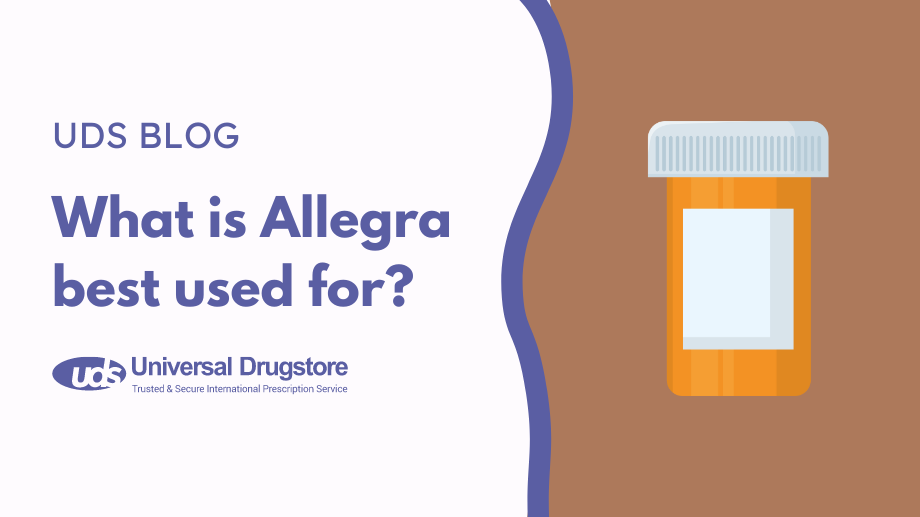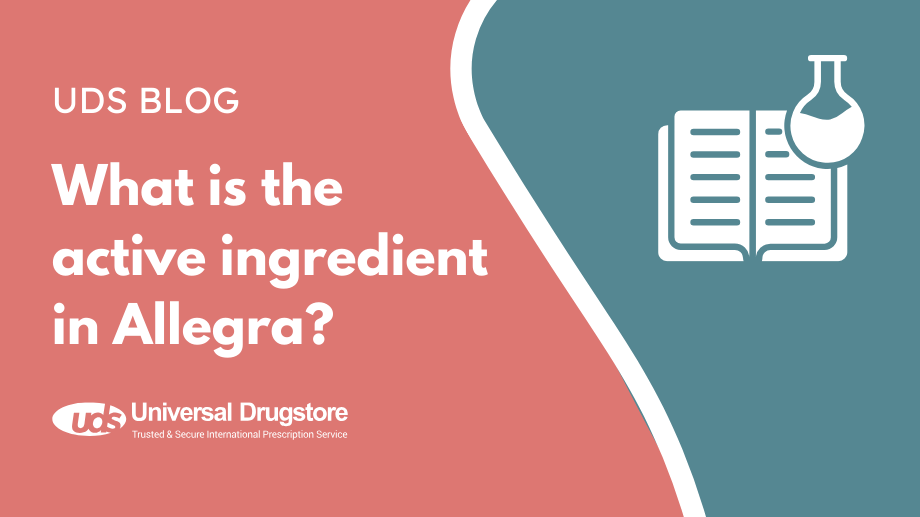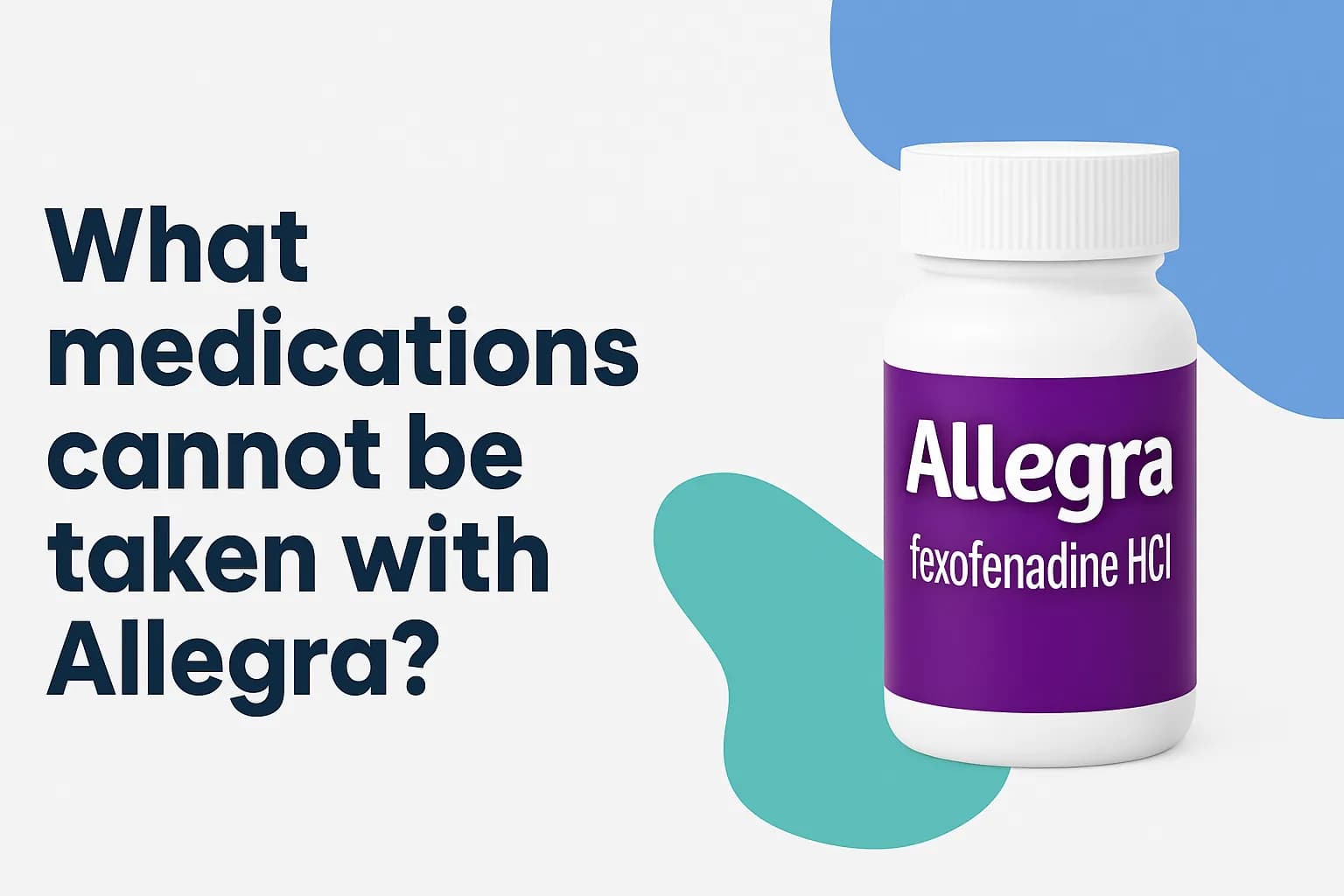What is Allegra best used for?

Allegra (fexofenadine) is a brand-name non-drowsy over-the-counter (OTC) antihistamine allergy medicine. It is an effective and fast allergy relief for common symptoms such as sneezing, itchy eyes, and stuffy nose.
Allegra is primarily used to relieve the symptoms of allergic rhinitis (seasonal allergies), also known as hay fever, caused by pollen from trees, grasses, and weeds. It helps reduce sneezing, itching, runny nose, watery eyes, and sore throat so you can enjoy being outdoors. If your allergy symptoms include sinus congestion, it may be worth considering Allegra-D, which includes the decongestant pseudoephedrine.
In addition to being a seasonal allergy medication, Allegra is also used to treat skin itching and hives caused by a condition called chronic idiopathic urticaria in adults and children. While it can treat this condition, it will not prevent hives or an allergic skin reaction from occurring.
How does Allegra work?
Allegra contains the active ingredient fexofenadine hydrochloride, which works by blocking the action of histamine, a substance in your body that causes allergy symptoms. When you come into contact with an allergen such as pet dander or pollen, your body releases histamine which can lead to sneezing, itching, and a runny nose. Allegra binds to the histamine receptors in your body, preventing histamine from causing these symptoms.
Allegra typically helps relieve allergy symptoms within 1 to 2 hours of taking it. Unlike some antihistamines, Allegra does not penetrate your blood-brain barrier, which means it does not usually cause drowsiness. This makes it a good choice if you need to stay alert and focused throughout the day.
What doses of Allegra are available?
Allegra comes in a variety of different dosage forms, including oral tablets, liquid, and rapidly-dissolving tablets. Liquid Allegra may contain sugar and the rapidly-dissolving tablets may contain aspartame. You should be careful if you have diabetes, phenylketonuria (PKU), or any other condition that you should limit or avoid these substances.
The recommended dosage of Allegra depends on factors such as your age, the severity of your allergies, the product being used, and any other medical conditions you may have. It is important that you follow the dosage instructions provided by your healthcare provider and the product packaging.
- Children: Approved for use in children aged 6 years and older. Dosage for children aged 6 to 11 years is 30 mg twice daily.
- Adults: Recommended dosage is 60 mg twice daily or 180 mg once daily.
- Elderly: Can be used safely, but dosage may need adjusting based on kidney and liver function.
If you have kidney disease or liver problems, your healthcare provider may recommend a lower dose of Allegra or adjust the dosing schedule to ensure your safety and optimize the medication’s effectiveness.
How do you take Allegra?
Follow all directions given by your healthcare provider and read the full prescribing information, FDA-approved product labeling, Instructions for Use, and Medication Guide before using Allegra. Some basic guidelines for using Allegra include:
- Do not take more than the recommended dose.
- Take the liquid, tablet, or capsule with or without food. Rapid-dissolving tablets should be taken on an empty stomach and not with fruit juice.
- Swallow tablets/capsules whole. Orally disintegrating tablets should dissolve on your tongue before swallowing. Liquid should be measured with the proper device.
- If you forget a dose, take it when you remember unless it’s almost time for the next one. Don’t double dose.
What are the potential side effects of taking Allegra for allergies?
The most common side effects of Allegra seen in clinical trials include:
- Headache
- Cough
- Upper respiratory tract infection
Serious side effects may require immediate medical attention. Contact a healthcare provider if you experience:
- Allergic reaction (hives, trouble breathing, swelling of the lips or face)
- Overdose (dry mouth, dizziness, drowsiness, seizures, hallucinations, or more severe effects)
If you suspect an overdose, contact Poison Control at 1-800-222-1222.
Allegra drug interactions
Allegra can interact with other medications. Tell your doctor about all drugs and supplements you take. Notable interactions include:
- Other medicines that cause drowsiness (sedatives, narcotics, sleeping pills, etc.)
- Erythromycin
- Ketoconazole
- Antacids with aluminum or magnesium (avoid within 2 hours of Allegra)
Allegra precautions
Before starting Allegra, let your healthcare provider know if you have:
- An allergy to Allegra or any of its ingredients
- Plans to become pregnant or are currently pregnant
- Are breastfeeding or planning to breastfeed
Is it better to take Allegra in the morning or at night?
Allegra can be taken at any time of the day. Take it at the same time each day for best results. If it makes you drowsy, consider taking it at night. Avoid drinking fruit juice 1–2 hours before and after taking Allegra.
Can you take Allegra and Claritin together?
No. Both are antihistamines and should not be taken together. Combining them can lead to overdose and side effects such as:
- Fast heart rate
- Dry mouth
- Agitation
- Loss of coordination
- Severe effects like seizures or cardiac arrest
If an overdose is suspected, call 911 or Poison Control at 1-800-222-1222 immediately.
Related medications
- Claritin (loratadine)
- Claritin RediTabs (loratadine ODT)
- Zyrtec (cetirizine)
- Xyzal (levocetirizine)
- Clarinex (desloratadine)
Sources
- Allegra. Medscape. Accessed June 4, 2024.
- Allegra Package Insert. Sanofi. Accessed June 4, 2024.
- Allegra. PDR. Accessed June 4, 2024.
- Allegra Hives 24HR. DailyMed. Accessed June 4, 2024.







